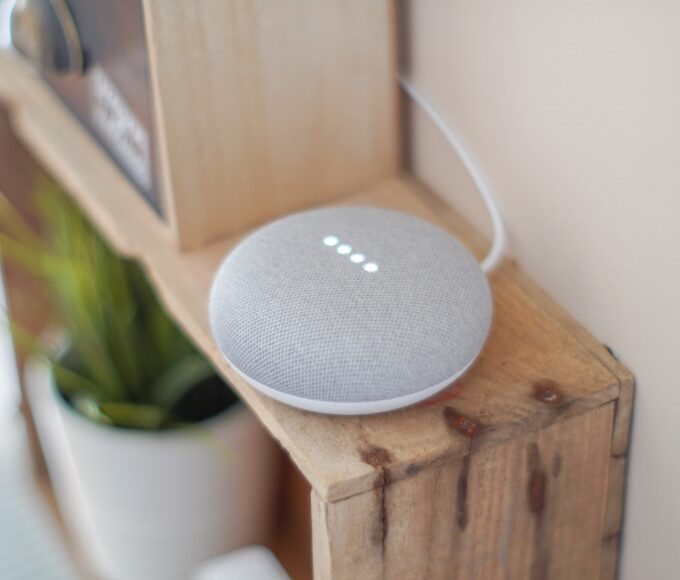Pros And Cons Of Wireless Home Security System

Pros And Cons Of Wireless Home Security System? A home security system could be hardwired or wireless. A wireless network uses individual sensors throughout the home that communicate and connect wirelessly to the central control panel using radiofrequency technology. This control panel then communicates with the outside world with the use of a cellular uplink.
This means that it does not need to be physically connected to the home. A wireless home security system has no charging cords. It either uses batteries or has another charging mechanism. It works without wires or cords.
Pros Of Wireless Security System
1. Easy Installation
Wireless systems are super easy to install, and they can be installed within a short period. They do not require any tech knowledge to be fixed. They can be self-installed with minimal time and tools at one’s convenience. There’s no need to worry about drilling holes or making too many modifications. This also means that it can easily be uninstalled and disconnected due to the property’s maintenance or other reasons.
2. Flexibility and Portability
Wireless systems are very flexible in that if you have to move to another location or apartment, you can put them up quickly. Since there are no wires used, the systems are easy to move without sustaining any damage. These system qualities make it better for renters who wish to take their alarm systems when they move.
3. Remote Control and Operation
With a wireless home system, you can control it with a mobile device from anywhere. This means that you can access all of your sensors and cameras at your fingertips, and you can easily monitor your home. This feature allows you to arm or disarms the system without stress using your mobile device.
4. Scalability
Unlike wired systems, they can easily be upgraded or modified. This means you can add extra sensors or cameras. They can be configured to add devices across the entire home.
5. Battery Strength
Wireless home systems can work with electricity, but they can also use batteries as a backup when there is a power outage. This allows your home to stay protected even when the power goes out.
6. Enhanced Protection
Wireless systems are more difficult to disable because there are no wires or cords used. This means that they provide better protection because they are more technologically advanced and flexible.
7. WiFi and Cellular Communication
Wireless systems use cellular networks, WiFi, and wireless mesh networks to interconnect each device. This allows the systems to communicate through storms and power outages. Instead of relying on landline communication to keep working, they rely on cellular networks. Therefore, they do not have the ability to go down or stop working.
In Summary
- simple to set up and takedown: Drilling holes or running wires isn’t required to install a wireless security system, and many wireless systems include a DIY installation approach that avoids installation fees. These systems can also be readily disassembled and moved to a new location. Renters, ancient homes, and buildings with brick, stone, or marble interiors that would be impossible to drill into for a wired system can benefit from them.
- Can Be Customized: As wireless systems aren’t hardwired, you can quickly add, move, and update the system. Wireless systems can usually communicate with other home automation systems to provide extra features such as smart locks, smart lights, and smart thermostats.
- Remote Access: An app, email alerts, or SMS alerts can be used to remotely monitor and control wireless networks. All basic functions can now be performed without the requirement for an in-home control pad.
- Less vulnerability: Intruders will not be able to disable a wireless system by cutting a single line. Furthermore, because most portions of a wireless system are powered by batteries, they are not as susceptible to power interruptions as a wired system.
Cons Of Wireless Security System
1. Prone to Interference
A wireless home system can easily be tampered with during a home invasion because of its wireless nature. Some of them are vulnerable to electromagnetic or structural interference because they communicate with the control panel using radio waves. Communication can be interrupted between these components, which can put your security at risk. In some instances, the interference can cause a false alarm.
2. Change of Batteries
Wireless systems that operate with batteries are prone to be forgotten. It is relatively easy for homeowners to forget that the batteries need to be changed, putting the family at risk. When the batteries are weak, it renders the system ineffective and leaves your home insecure.
3. Hacking Risks
With a wireless security system, there are possibilities of a criminal hacking into it and jamming the signals to avoid an alarm from going off. Wireless systems without an encrypted or authenticated signals sent from access point sensors can have their signals stopped.
4. Cost
Wireless security systems are technologically advanced, and they come with components like control panels, remote key panels, sirens, sensors, and so on. Each element of a wireless security system includes a radio transmitter, and this makes it costly.
These are factors to consider before getting a wireless security system. Weigh Pros And Cons Of Wireless Home Security System, as well as the location of your home to get the best out of it.
In Summary
- The wireless home security system is less reliable: A wireless system’s reliability can be damaged by electromagnetic interference, structural interference, or even bad weather, making it less reliable than WiFi or a telephone. As a result, wireless security systems are more prone than wired systems to be triggered by false alarms.
- Vulnerable to hackers: It’s critical to review the characteristics of your wireless system to ensure that it’s not a hacker’s favorite target. Wireless systems without encrypted or authenticated signals received from access point sensors could be hijacked, and their signals blocked, effectively deactivating the alarm and allowing intruders to enter a home unnoticed.
- Not suitable for huge areas: Wireless security sensors typically have range limitations, so they’re not suitable if you have a large home or need coverage throughout a large property with many structures. A wireless radio signal’s average range is roughly 500 feet.
- A lot of upkeep: A wireless system’s components may be electric, but many rely on batteries, which must be replaced or recharged on a regular basis if you have a wireless security system installed.
- Replacement of the battery: As most of these devices rely on batteries and have no backup power sources, you’ll need to remember to check the battery’s charge level on a regular basis to guarantee it’s still operational. If the batteries run out, the alarm will not work until the batteries are replaced. While this can be inconvenient, simply being aware of it helps ensure that you are always safe.
In conclusion,
it is clear that the benefits of a wireless security system outnumber the drawbacks. The downsides can be avoided to a significant extent if the wireless system is chosen properly after performing some study.
Recent Posts
Best Smart Light Switch For Google Home
6th May 2023Best No Hub Smart Bulbs For Alexa And Google Home
6th May 2023How to connect smart light to google home
6th May 2023Best 2 burner induction cooktop built-in
29th April 2023Related Articles
How to Connect Lights to Google Home mini
Connecting your lights to your Google Home Mini can be a game-changer...
ByOlaoluwa Johnson T.29th April 2023DIY workstation sink at home
Setting up a workstation sink at home can be a great addition...
ByOlaoluwa Johnson T.10th April 2023How To Use An Induction Cooking For Dummies
Have you been looking for the best ways to use induction cooking...
ByOlaoluwa Johnson T.10th April 2023How to choose the right vacuum cleaner for your home
How to choose the right vacuum cleaner for your home can sometimes...
ByOlaoluwa Johnson T.2nd April 2023










